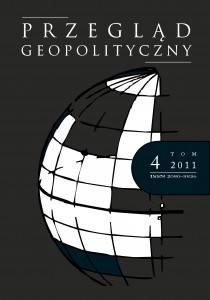GEOPOLITYCZNE POŁOŻENIE SERBII W WARUNKACH POSTJUGOSŁOWIAŃSKIEJ TRANSFORMACJI
GEOPOLITICAL POSITION OF SERBIA UNDER THE CONDITION OF POST-JUGOSLAV TRANSFORMATION
Author(s): Valentin MihaylovSubject(s): History, Geography, Regional studies, Regional Geography, International relations/trade, Transformation Period (1990 - 2010), Present Times (2010 - today), Geopolitics
Published by: Polskie Towarzystwo Geopolityczne
Keywords: Serbia; transformation; geopolitical position;
Summary/Abstract: After the demise of Yugoslavia, the geopolitical position of Serbia has changed dramatically. A series of wars in the 90-s and international economic sanction has resulted in Serbia’s isolation from the main currents of market reforms and European integration in Central and Eastern Europe. What is more, the country faced further territorial losses due to the secession of Montenegro in 2006 and the proclamation of independence of the southern province of Kosovo in 2008. In its current borders the country occupies only 30,3% of the ex-Yugoslav Federation. Despite the territorial losses, the area occupied by contemporary Serbia retained some of its features important for the whole Europe. Several international transport corridors cross the Serbian territory and consequently the country plays a significant role in trade between Central and Western Europe and the Balkan countries, including Turkey. The article discusses the close relationship between safety issues in the geopolitics of the Balkans and the geo-demographic or ethno-political situation. After the secession of Kosovo, which is inhabited in almost 95% by Albanians, modern Serbia still possesses three areas of high risk of ethno-political conflicts, namely: Vojvodina, Sandžak and Preševo. Their characteristics have also been considered in the paper. In the post-socialist period being of main interest in this paper, Serbia has undergone two major phases: till 2000 and after 2000. The breakthrough between them occurred due to some major changes connected with geopolitical and geoeconomic position of Serbia: the end of the Kosovo crisis and conflicts in the former Yugoslavia, the change of the Milošević regime in October 2000; recognition by UN of the Alliance state of Yugoslavia (Serbia and Montenegro) on 1st of November 2000, the gradual introduction of international sanctions and restoration of conditions for the normalization of bilateral political and economic relations with other countries and international organizations.
Journal: Przegląd Geopolityczny
- Issue Year: 2011
- Issue No: 04
- Page Range: 59-74
- Page Count: 16
- Language: Polish

